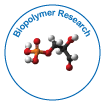Eco-Friendly Synthesis Routes for Biopolymers Using Microbial Fermentation Techniques
Received: 02-Jun-2025 / Manuscript No. bsh-25-167294 / Editor assigned: 06-Jun-2025 / PreQC No. bsh-25-167294 / Reviewed: 17-Jun-2025 / QC No. bsh-25-167294 / Revised: 23-Jun-2025 / Manuscript No. bsh-25-167294 / Published Date: 30-Jun-2025 DOI: 10.4172/bsh.1000278
Abstract
Keywords: Microbial fermentation; Eco-friendly synthesis; Biopolymer production; Bioprocess engineering; Renewable resources; Polyhydroxyalkanoates (PHA); Green biotechnology; Fermentation based polymers; Biomanufacturing; Sustainable bioplastics
Keywords
Microbial fermentation; Eco-friendly synthesis; Biopolymer production; Bioprocess engineering; Renewable resources; Polyhydroxyalkanoates (PHA); Green biotechnology; Fermentation-based polymers; Biomanufacturing; Sustainable bioplastics
Introduction
The demand for sustainable materials has led to increased interest in microbial fermentation as an eco-friendly route for biopolymer synthesis. Unlike traditional chemical synthesis that relies on petroleum-based feedstocks and harsh conditions, microbial fermentation utilizes renewable substrates like agricultural waste, molasses, and glycerol to produce biodegradable polymers under mild, biologically controlled environments [1-5]. Microorganisms such as Cupriavidus necator, Bacillus spp., and Pseudomonas spp. can produce polyhydroxyalkanoates (PHAs), bacterial cellulose, and other valuable biopolymers as intracellular or extracellular products. These biopolymers exhibit promising properties such as biodegradability, biocompatibility, and versatility in physical and chemical characteristics. This study explores various fermentation techniques and microbial strains employed for the efficient, sustainable, and cost-effective synthesis of biopolymers, highlighting their potential applications in packaging, agriculture, and biomedical sectors [6-10].
Discussion
Microbial fermentation offers several benefits, including scalability, use of low-cost feedstocks, and reduced environmental impact. PHAs, for instance, can be synthesized directly by bacteria as carbon storage compounds, which are harvested, purified, and processed into bioplastics. The choice of carbon source and fermentation conditions—such as pH, temperature, aeration, and nutrient limitation—affects the yield and molecular properties of the biopolymer. Fed-batch and continuous fermentation techniques have been employed to increase productivity and reduce costs. Genetic engineering has further enhanced microbial strains to improve substrate utilization and yield. Moreover, mixed microbial cultures (MMCs) offer cost-effective alternatives to pure cultures and are gaining attention for large-scale production. Besides PHAs, microbial fermentation is also used to produce xanthan gum, levan, curdlan, and bacterial cellulose, which find applications in food, medicine, and material science. Downstream processing and product recovery remain bottlenecks due to the high costs involved, but innovations in membrane filtration, solvent extraction, and cell disruption techniques are helping to address these issues.
Conclusion
Microbial fermentation stands out as a sustainable and green approach to producing a wide range of functional biopolymers. With advances in metabolic engineering, bioprocess optimization, and the use of renewable substrates, microbial fermentation is becoming increasingly viable for industrial-scale applications. As the world moves away from fossil-fuel-based materials, biopolymer synthesis via fermentation holds the potential to reshape industries with biodegradable, bio-based alternatives that align with environmental and economic goals.
Citation: Juan CD (2025) Eco-Friendly Synthesis Routes for Biopolymers Using Microbial Fermentation Techniques. Biopolymers Res 9: 278. DOI: 10.4172/bsh.1000278
Copyright: Copyright: © 2025 Juan CD. This is an open-access article distributed under the terms of the Creative Commons Attribution License, which permits unrestricted use, distribution, and reproduction in any medium, provided the original author and source are credited.
Select your language of interest to view the total content in your interested language
Share This Article
Recommended Journals
Open Access Journals
Article Tools
Article Usage
- Total views: 344
- [From(publication date): 0-0 - Nov 21, 2025]
- Breakdown by view type
- HTML page views: 272
- PDF downloads: 72
